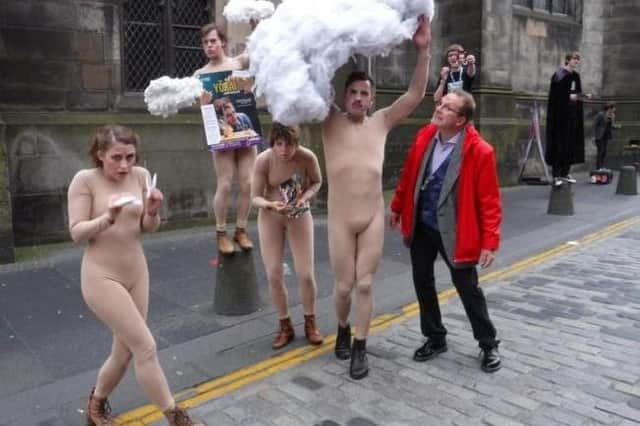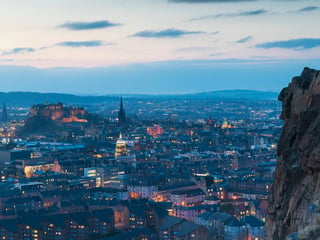Edinburgh's festivals must return after Covid but should consider a sabbatical every seven years – Professor Joe Goldblatt


I am happy to tell you that, based upon my 40 years of studying the world-renowned Edinburgh Festivals, this is what is referred to today by conspiracy theorists as “fake news”.
In fact, numerous independently conducted economic, social and environmental impact studies have provided evidence that these national treasures have provided billions of pounds worth of significant positive economic impact locally and nationally and, increasingly, they are also having significant and valuable social and environmental impacts.
Advertisement
Hide AdAdvertisement
Hide AdHowever, perception is often reality and, as a result of the Covid-19 crisis in our city and country, the general public appears to be questioning how the festivals should be re-designed to better align with the changing values of our citizenry when they resume.
Recently I was surprised and also dismayed to hear a local civic leader state that he was happy that the Princes Street Gardens were empty this year and that perhaps this would allow the grass to be restored to its natural state as a result of the absence of tourists and local residents attending the annual Christmas market. This type of simplistic observation is, I am afraid, all too typical of the feelings of many citizens this year.
Rather than abandon our winter and summer celebrations entirely, perhaps we would be better served by simply re-calibrating the size and frequency of these events.
For example, it is customary in some cultures to allow annually re-occurring events to enjoy a sabbatical every seven years (the term sabbatical is derived from the biblical tenth commandment to enjoy a seventh day of rest). This year was in fact a sabbatical year for our festival makers where they were able to reflect, re-imagine and perhaps re-invent a series of annual celebrations that shall be even more sustainable in the future.
Having observed how dozens of cities throughout the world are also coping with this same dilemma, I have three recommendations that may provide a future pathway for Edinburgh to discover a silver lining for its festivals from within the dark clouds of the global pandemic.
After all, the term event, of which Edinburgh is particularly and well deservedly proud, is derived from the Latin term “e venire”, meaning “outcome”.
Therefore, every event may indeed aspire to have a planned outcome. Our task now is to improve these outcomes for future generations to not only enjoy the world’s best festivals but also experience the world’s best quality of life in our festival city.
First, it is not a valid question for citizens to ask “if” the festivals return. They absolutely must return because of the priceless community spirit, commerce, and reputational advantage they provide our city.
Advertisement
Hide AdAdvertisement
Hide AdTo lose this valuable jewel in the cultural and social crown of our nation would be a catastrophe. Therefore, now is the time to begin to carefully consider a phased approach to their return that will allow them and their constituents to enjoy early success from small steps rather than trying to simply pick up where they left off one year ago.
Secondly, our festivals could see the new age of live events as one of reimagining their manifesto, their mandate and their vision for a city that is, according to the 2050 Edinburgh City Vision plan, one that is thriving, welcoming, fair and pioneering.
Nearly 65,000 citizens responded to the City Vision consultation and they identified these aspirations as critically important attributes for our city going forward. The leaders of our festivals and their constituents therefore should reimagine and reinvent their cultural offerings to support and advance opportunities for Edinburgh to thrive, welcome, become more fair and serve as pioneers once again, just as we did in the 18th century during the Scottish Enlightenment.
Thirdly and finally, we have discovered and quickly embraced the use of technology for education, business and social communications during this dark time in our lives. In fact, the light of the computer or tablet screen has often been the only bright light during this horrific period.
Let us not diminish this light. Rather, let us become pioneers by expanding it and creating a parallel universe for our festivals to be delivered simultaneously through both live and in person as well as online using a consistent, creative and innovative approach to benefit many generations to come.
In order for us to find this silver lining from among the dark clouds we have experienced for far too long, we must now be prepared to accept that change is required in order for our city to thrive more in the future and that change can also promote a more welcoming, fairer and pioneering environment with our festivals at its very core. Then and only then shall we achieve greater sustainability by aligning our festivals with the future vision of our citizens.
And this vision may include considering a self-arranged sabbatical every seventh year that will allow our festival makers and their constituents an opportunity to continually reflect, re-imagine and re-invent our annual celebrations to happily marry the current well-earned title of the “world’s best festival city” with the future permanent title of “world’s best quality of place city”. May the two titles and outcomes live happily ever after for a long time to come.
Professor Joe Goldblatt is emeritus professor of planned events at Queen Margaret University and is the author, co-author and editor of 39 books in the field of planned events. For more information about his views visit www.joegoldblatt.scot
A message from the Editor:
Thank you for reading this article. We're more reliant on your support than ever as the shift in consumer habits brought about by coronavirus impacts our advertisers.
If you haven't already, please consider supporting our trusted, fact-checked journalism by taking out a digital subscription.
Comments
Want to join the conversation? Please or to comment on this article.
